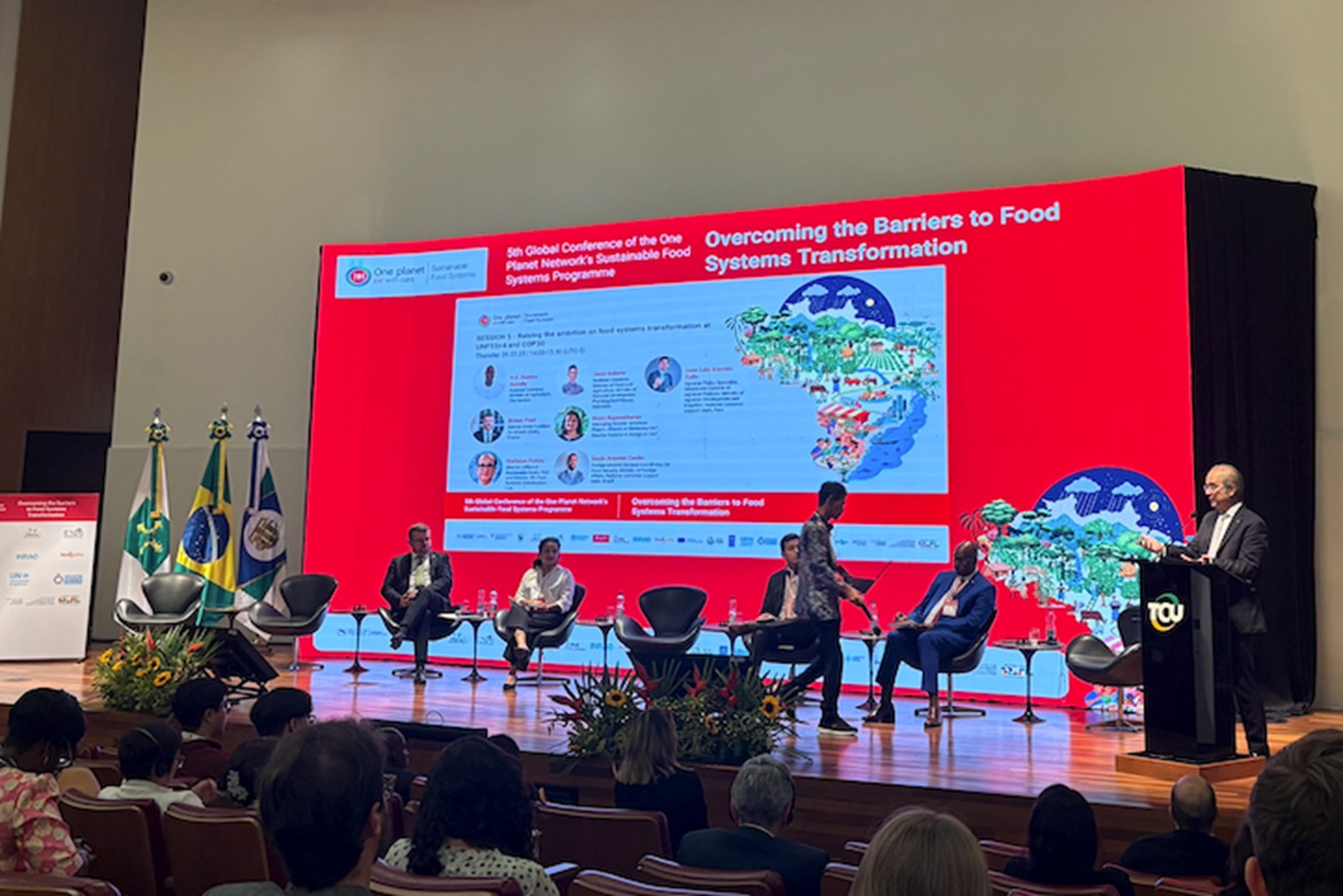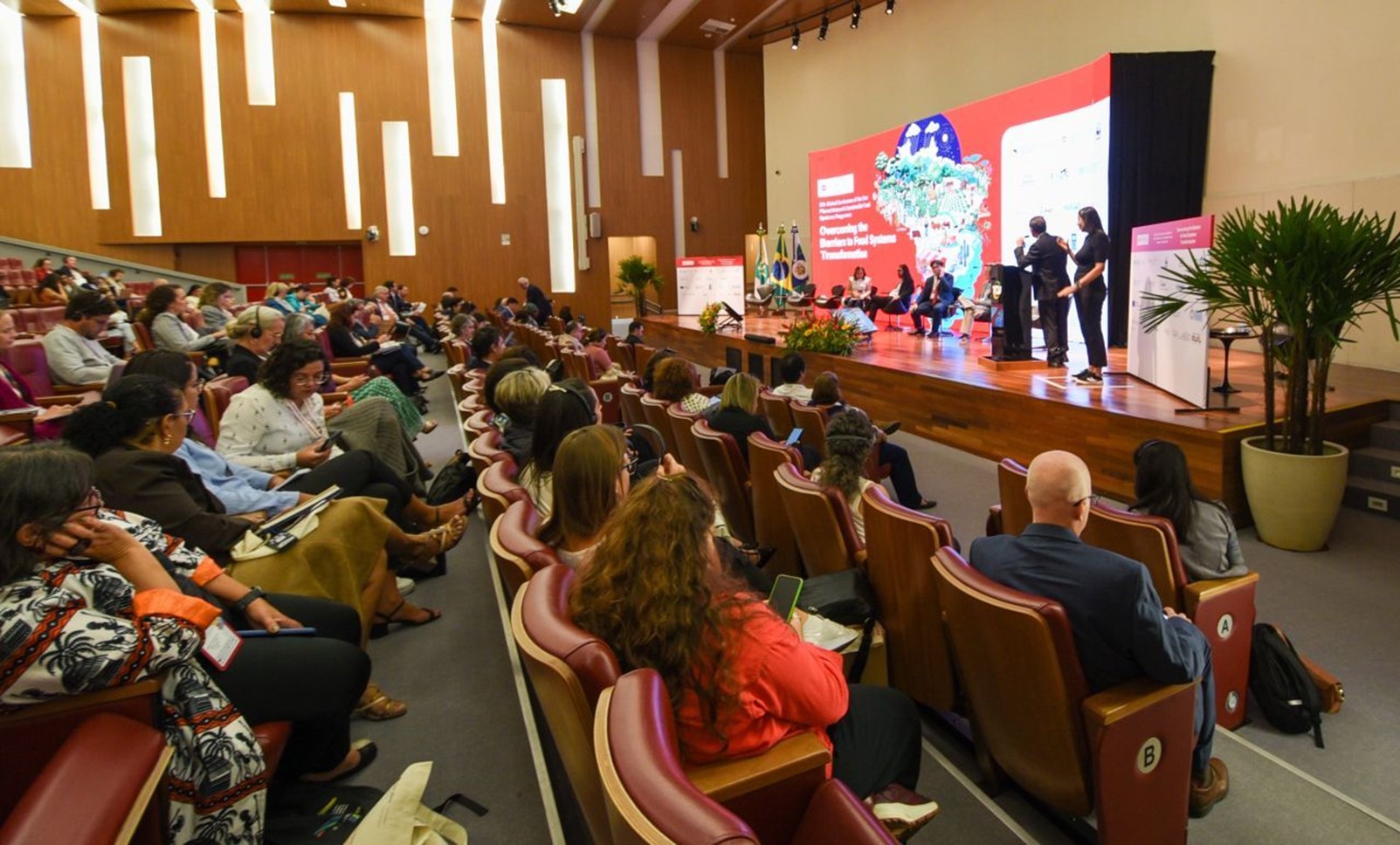Raising the Ambition on Food Systems Transformation at UNFSS+4 and COP30: The Hub's Role at the 5th Global Conference of the One Planet Network's Sustainable Food Systems Programme

©Photo credits: Maria Giulia Senesi/WFP
How can countries drive food systems transformation through national ownership, policy coherence, and inclusive financing? This question guided a high-level session on 29 May 2025, led by the UN Food Systems Coordination Hub in partnership with Brazil’s government, UNEP, FAO, UN-Nutrition, and CIAT. The session convened National Convenors and global partners to accelerate food systems action ahead of the UN Food Systems Summit +4 (UNFSS+4) and COP30.
Dr Stefanos Fotiou, Director of the Hub, opened with a call for governments to align national pathways with global frameworks while centering inclusion, particularly of women, Indigenous Peoples, youth, and smallholders. He also stressed the importance of science in attracting private investment and scaling climate finance.
Brazil’s representative, Mr Saulo Arantes Ceolin, emphasized the need for strong national leadership and policy integration. Brazil’s Convergence Dialogue, bringing together ministries, civil society, Indigenous organizations, and academia, was cited as a model for linking food, climate, and development.
From The Gambia, Minister of Agriculture H.E. Demba Sabally shared insights from the country's pilot of the Hub’s Youth Leadership Programme. The initiative encompasses land banking, cooperative support, and entrepreneurship, aiming to create 150,000 youth employment opportunities by 2028. South-South cooperation and knowledge exchange also emerged as critical tools for scaling context-specific solutions.
The plenary featured national examples of integrated planning. Indonesia highlighted its Convergence Action Blueprint (CAB), launched during a 2024 workshop, which aligns food systems transformation with NDCs and SDGs through 20 interventions. Peru introduced the Financial Flows to Food Systems (3FS) tool, which maps public and private investments to improve financial transparency and accountability.
Scientific contributions were spotlighted by Ms Maya Rajasekharan of the Alliance of Bioversity International and CIAT, who discussed crop improvement through agricultural biodiversity and its potential to bolster resilience, nutrition, and soil health. She underscored the need to integrate these innovations into national agendas.
France’s Special Envoy on Nutrition, Mr. Brieuc Pont, closed with a call for stronger integration of nutrition into development finance. Citing research that every $1 invested in nutrition yields up to $35 in returns, he urged leaders to view nutrition as both a moral and economic priority.
The session also highlighted challenges, including the need for deeper integration of Indigenous knowledge, decentralized capacity-building, and enforceable accountability. Youth representatives stressed the need for clearly defined roles in implementation, not just consultation.
Dr Fotiou closed by urging structural reform grounded in inclusivity, science, and local realities. As the world prepares for UNFSS+4 and COP30, the takeaway was clear: models for transformation already exist. Now is the time for political will, robust governance, and sustained cooperation to scale what works and deliver lasting change for people and the planet.

